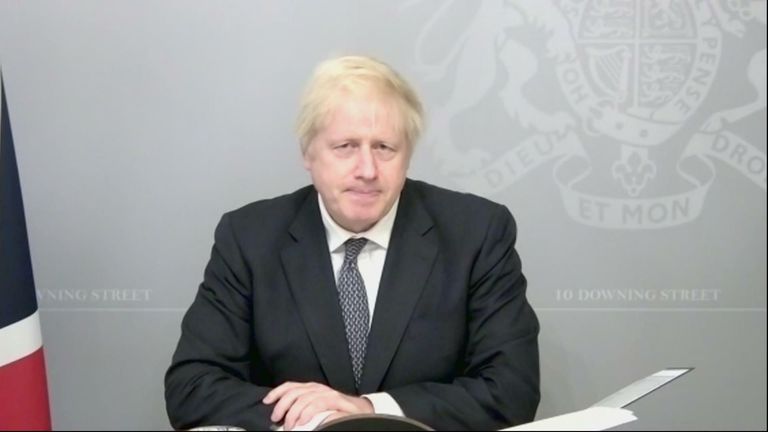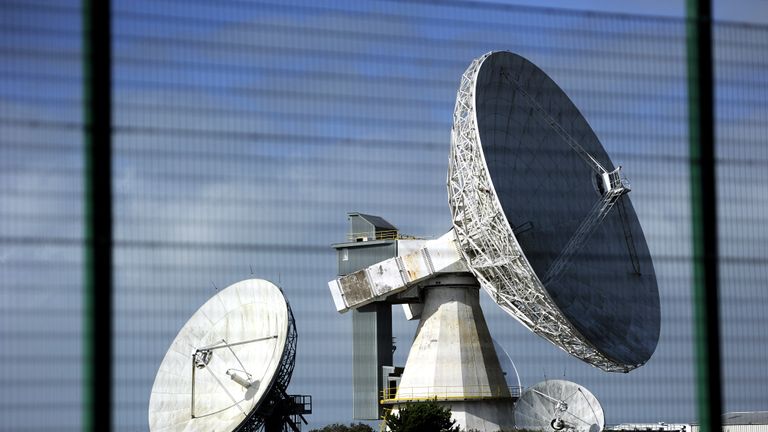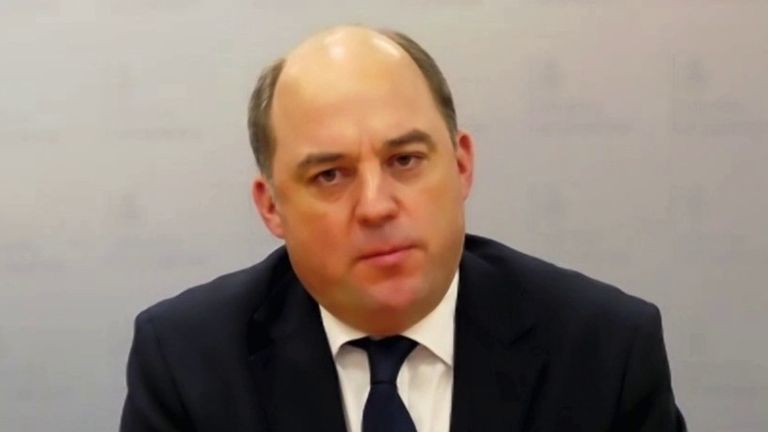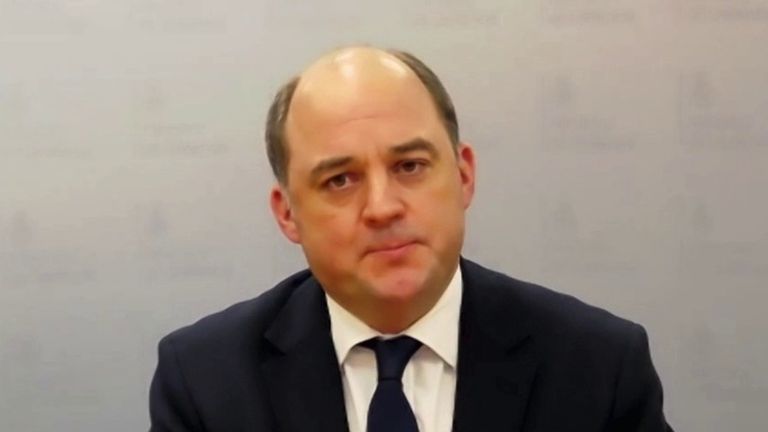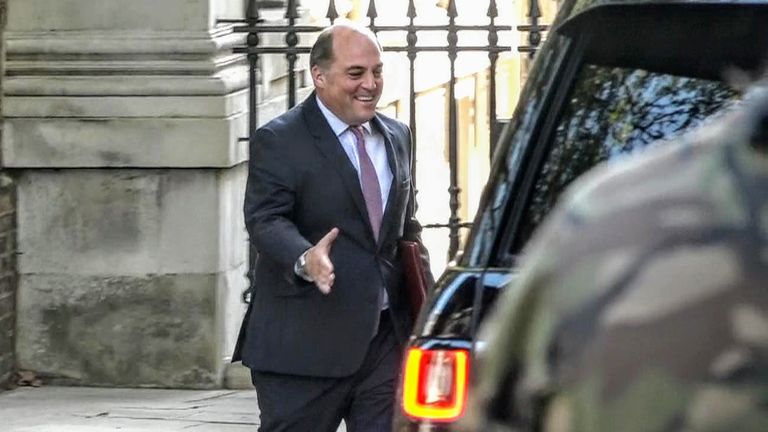New space command and cyber force unveiled in biggest defence investment since Cold War
The financial boost is set to generate 10,000 jobs a year and demonstrate to allies the UK is a reliable partner, the PM will say.
Thursday 19 November 2020 12:32, UK
Boris Johnson will announce the biggest investment in defence since the Cold War, saying the UK has a chance to end an "era of retreat" with a new space command, cyber force and artificial intelligence agency.
The £16.5bn in extra money over four years is not enough to fill a funding gap in the military's budget, but is far more than defence chiefs had thought they would receive, given financial constraints on the Treasury because of coronavirus.
The prime minister will tell MPs the move is set to generate 10,000 jobs a year and demonstrate to allies like the US that the UK is a reliable partner.
If spread evenly over four years, the spending boost equates to about a 10% annual increase in the defence budget, which stands at more than £40bn.
"I have taken this decision in the teeth of the pandemic because the defence of the realm must come first," Mr Johnson said in a statement ahead of the announcement.
"The international situation is more perilous and more intensely competitive than at any time since the Cold War and Britain must be true to our history and stand alongside our allies. To achieve this we need to upgrade our capabilities across the board.
"This is our chance to end the era of retreat, transform our armed forces, bolster our global influence, unite and level up our country, pioneer new technology and defend our people and way of life."
Washington, Paris and other capitals have been waiting for weeks to learn the outcome of elongated discussions between the Ministry of Defence (MoD), the prime minister's office and the Treasury about whether defence will receive a multi-year settlement - even as other departments are only expected to be given a single-year budget.
Tobias Ellwood, a former defence and foreign office minister, said the news would not be lost on the incoming administration of US president-elect Joe Biden.
"This was a pivotal moment for us to decide where we want to go, who we want to be," Mr Ellwood said.
However the new funding announcement comes without the full weight of what had been billed as a sweeping review of foreign, defence and security policy.
The Integrated Review was meant to set out the UK's global priorities, an assessment of the security risks and how it is adapting to meet them.
Instead the full conclusions have been delayed until the New Year.
The prime minister is expected to confirm the creation of a National Cyber Force, which is a partnership between the military and the spy agency GCHQ.
In reality, it has existed for the last couple of years but this will be the first time it has officially been avowed.
The force has the ability to launch offensive cyber attacks as well as defend against hostile action in cyber space - seen as an increasingly critical domain of conflict between states.
Another new domain, along with the traditional ones of land, sea and air, is space.
Mr Johnson will unveil a new "Space Command", which the government said would be "capable of launching our first rocket by 2022".
In addition, a new Artificial Intelligence agency will be created to focus on the fast-moving advances in that area. It is thought this agency will be part of the Department of Digital, Culture, Media and Sport.
Ben Wallace, the defence secretary, welcomed the spending decision and said there would actually now be a £24bn boost to defence spending - when the extra money is added to the Conservatives' election commitment to increase the budget by at least 0.5% above inflation every year.
"This means that we can have a proper discussion about what are our global ambitions, and how we are going to fund it," he told Sky News' Kay Burley.
"This very large settlement for defence will allow us to fix the problems we've inherited... and allow headspace to modernise our forces."
Tough decisions will still need to be made to make the books balance despite the uplift.
Ageing equipment, including a number of tanks and other armoured vehicles, look set to be retired as well as some of the Royal Navy's older frigates.
Much of the new money will still need to be absorbed by expensive, existing programmes, including the nuclear deterrent.
Analysts also expressed concern about whether there might be a raid on the overseas aid budget to help fund the splurge on defence.
The government is thought to be considering temporarily reducing a commitment to spend 0.7% of national income on overseas aid.
Mr Wallace told Sky News that "the actual decisions on the numbers" behind the boost to defence spending would be revealed by Chancellor Rishi Sunak at next week's spending review.

